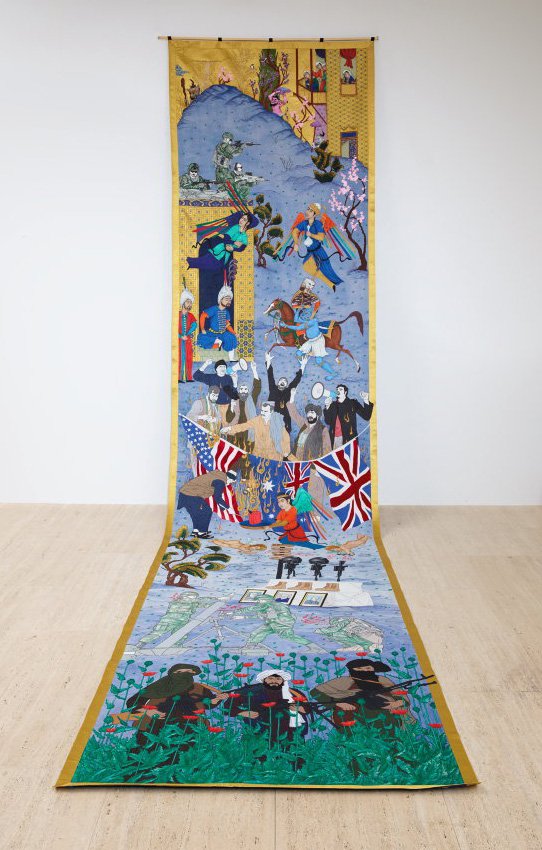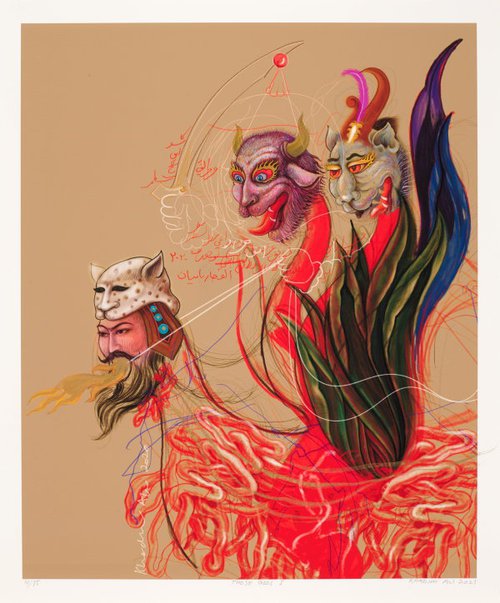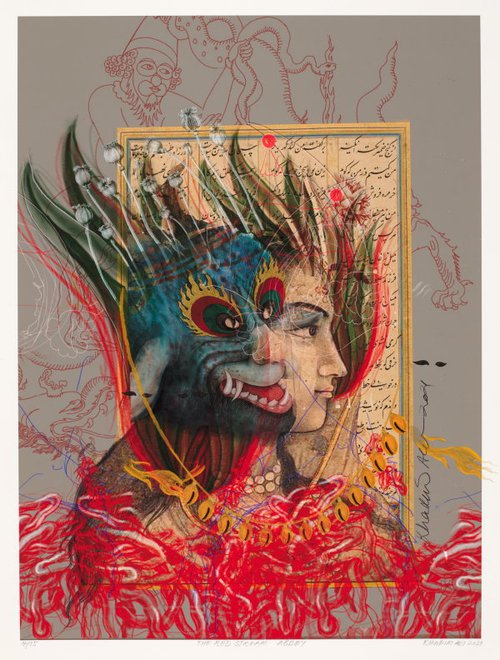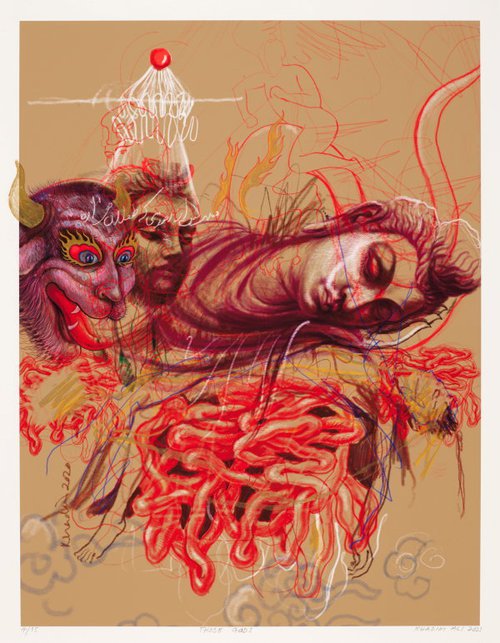-
Details
- Other Title
- Untitled (from the Flowers of Evil series)
- Date
- 2019
- Media category
- Textile
- Materials used
- acrylic paint, hand and machine embroidery stitched on fabric and dye
- Dimensions
- 667.8 x 153.2 cm
- Credit
- Contemporary Collection Benefactors 2020
- Location
- Not on display
- Accession number
- 147.2020
- Copyright
- © Khadim Ali. Courtesy Milani Gallery
- Artist information
-
Khadim Ali
Works in the collection
- Share
-
-
About
Khadim Ali weaves history and fable into an incisive commentary on contemporary life in Afghanistan and Pakistan. In this major textile work, demons and winged figures occupy the same field as poignant markers of contemporary conflict; Taliban fighters wading through poppy fields, Western flags burning, American soldiers loading ammunitions. With a composition and intricate density that draws reference to Persian miniatures, which he studied at the National College of Arts in Lahore, this work presents a complex story board that is loaded with political intent as well as poetic resonance. The folkloric filters into the present day while the delicacy of Ali’s imagery belies its subject. It is the historical patterns of violence and retribution that are illuminated here. This is a work about the mythology of heroism and its deployment as a means to justify violence. Stories of saviours and heroes are as corrosive as they are comforting. Together they institute a cycle of violence, the lived effects of which, as Ali well understands, are still being felt.
Much of Ali’s work engages in a sustained dialogue with the 10th Century Persian epic poem the Shahnameh or ‘Book of kings’ (c977-1010). The text is a conduit for personally resonant narratives, relating to Ali’s experience as an Afghan Hazara refugee, but also acts as an allegorical template for the study of historical transference. Its stories and characters are symbolically freighted. Ali is acutely sensitive to the way the poem has been interpreted and co-opted. With its hero, Rustum, having been appropriated by the Taliban, Ali instead often turns his attention, and identification, to the poem’s demons, using these figures to narrativize the dehumanisation of people. In this work, demons look out from their perch at the top of the scene onto a warzone. Violence sprawls but is aided by other mythological figures. A pair of cupids carry a combat boot and a helmet. The deification of violence in the name heroism is, here, exposed and undone.




